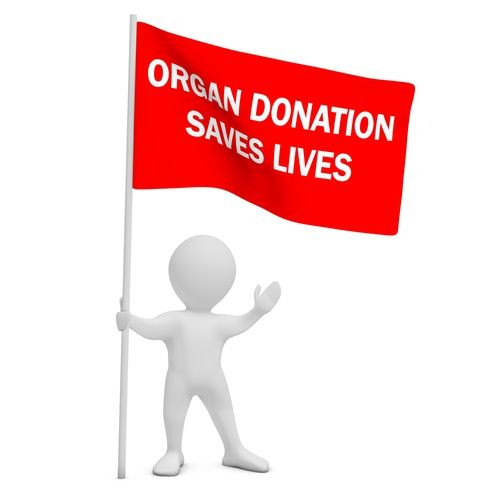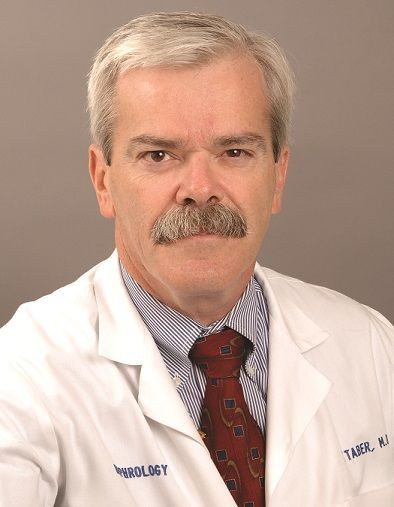5 Organ Donation Myths: My License Says I’m A Donor, But Why Weren’t My Organs Donated?

Some people might be hesitant to check off the ‘organ donor box’ when applying for or renewing their license, but they shouldn’t be. Before checking that box off, there are just a few important things you should be aware of.
I spoke with Dr. Tim Taber, who gave me the ins and outs of organ donation. Dr. Taber is a transplant nephrologist, the medical director at Indiana University Health, and serves as the chief medical officer for the Indiana Organ Procurement Organization. IU Health is one of the largest transplant centers in the country and performs nearly 500 solid-organ transplants each year. Here’s a few of the most common organ donation myths debunked:
Myth #1: My license says I’m an organ donor, so my organs are automatically going to be donated.
False: In many hospitals, if your next of kin says ‘no,’ then your organs will not be donated. However, Dr. Taber mentioned how in states, like Indiana, there are stiff laws, therefore if you say you want to be a donor, then doctors are bound by state law to follow through with that.
Because some states rely on your next of kin, it is very important to talk to your family if you would like to donate your organs. “Say I want to be a donor and this is why because when somebody dies, it’s the worst day for their family ever. That day for the rest of their lives will be the day that their loved one died and the last thing they want to think about is donation, but if they’ve already had that conversation with that loved one and they know that the loved one wants it and why they want it, then it’s much easier for them in that situation,” Dr. Taber said in a phone interview.
Myth #2: If you are a registered donor, a doctor might declare you dead before it’s appropriate.
False: “Our physicians are not out there to create donation possibilities. They’re not out there to declare someone brain dead that’s not brain dead. That’s not a mistake that anybody ever wants to make. You know, I think that’s the biggest concern that people have is that they hear stories about so and so was declared brain dead and then a week later he went home and now he's fully functional,” Dr. Taber said.
Myth #3: If I check off the ‘organ donor box’ on my license and I get in a near-death car accident, doctors are less likely to save my life.
False: “Physicians hate for people to die, and they don’t want them to die,” Dr. Taber said. It is important to note that the people who declare a person brain dead are not the same people who approach the family for organ donation.
Myth #4: If you are rich or famous, you can get moved to the top of the waiting list.
False: There are few ways to move to the top of the waiting list, but being rich is not one of those ways. United Network for Organ Sharing (UNOS) maintains a database of all patients waiting for organ transplants. “It’s not done locally, it’s done on a national basis by a national computer, it’s taken out of the hands of everybody else, so there’s no opportunity for it to be fixed, people worry about that too. People worry it will only go to somebody like Mark Cuban, which you can’t do that, it won’t impact that,” Dr. Taber said.
One way to get to the top of the list is if you donate a kidney and experience life-threatening problems down the road. It is completely safe to donate a kidney because you only need one kidney to survive, not two; however, “There is a small percentage of people who then develop kidney failure, usually 20 or 30 years later or longer. If that happens, then they go to the top of the list when they have issues,” Dr. Taber said.
Myth #5: If I donate my organs, I can’t have an open-casket funeral.
False: “You can certainly have an open-casket funeral after donation,” Dr. Taber said. Donors’ bodies are clothed for burial, so you won’t see any sign of donation.
Organ donation is a vital part of the world’s medical system. Each day an average of 79 people receive organ transplants, but an average of 18 people die each day waiting for transplants that can’t take place because of the shortage of donated organs, according to the U.S. Department of Health and Human Services. One organ donor can save up to eight lives.
If you would like to sign up to become an organ donor, you can do so here. After you sign up, it is very important to discuss your decision with your family because it makes it a lot easier down the road.
“These people whether they’re living or deceased donors, they’re heroes and they save lives. We cannot take care of these patients and we can’t transplant these patients without frankly, the kindness of strangers. It is a wonderful thing. It is maybe the best thing I think you can do for somebody. There is nothing good that comes out of death, except for transplantation,” Dr. Taber said.

Published by Medicaldaily.com



























